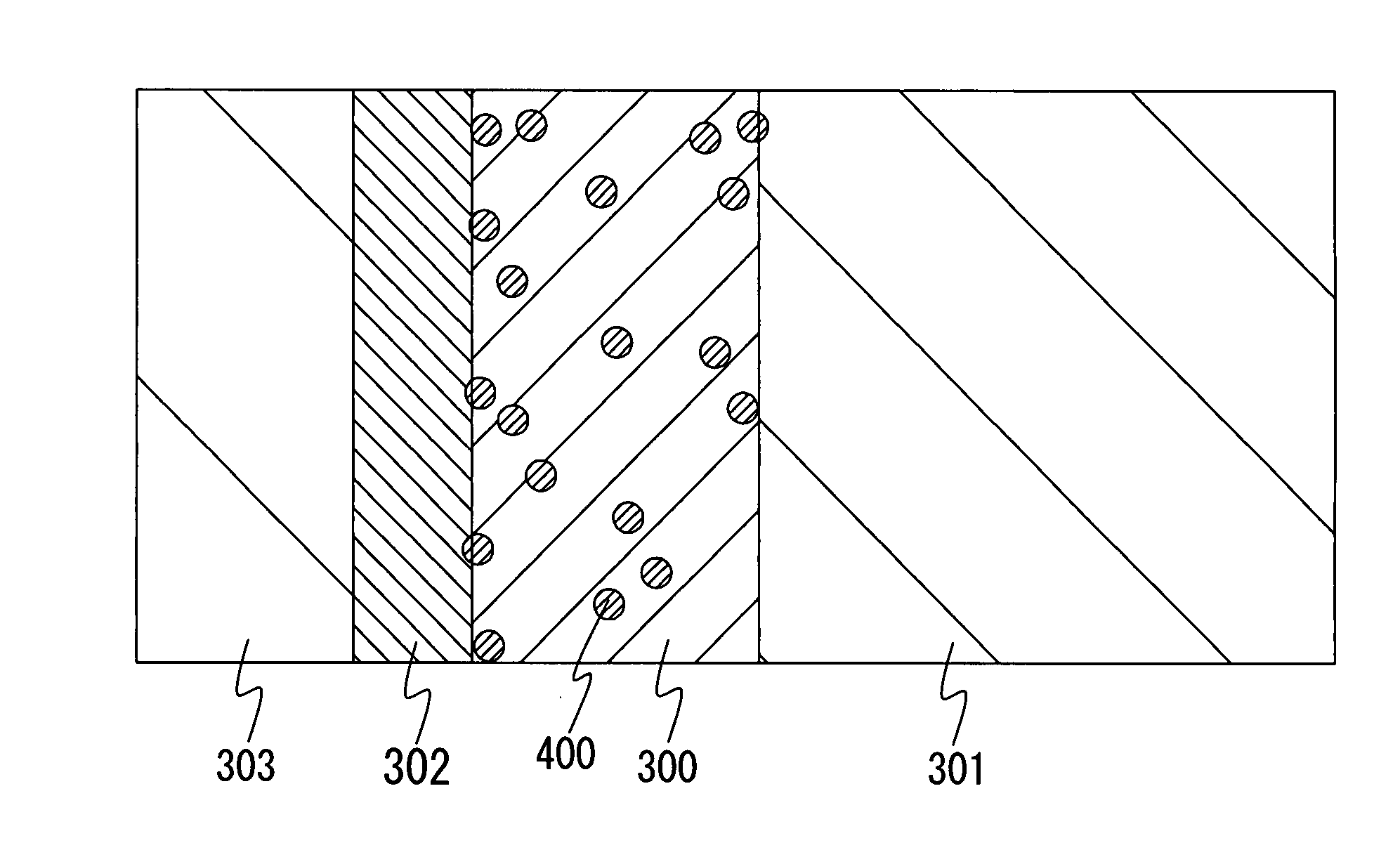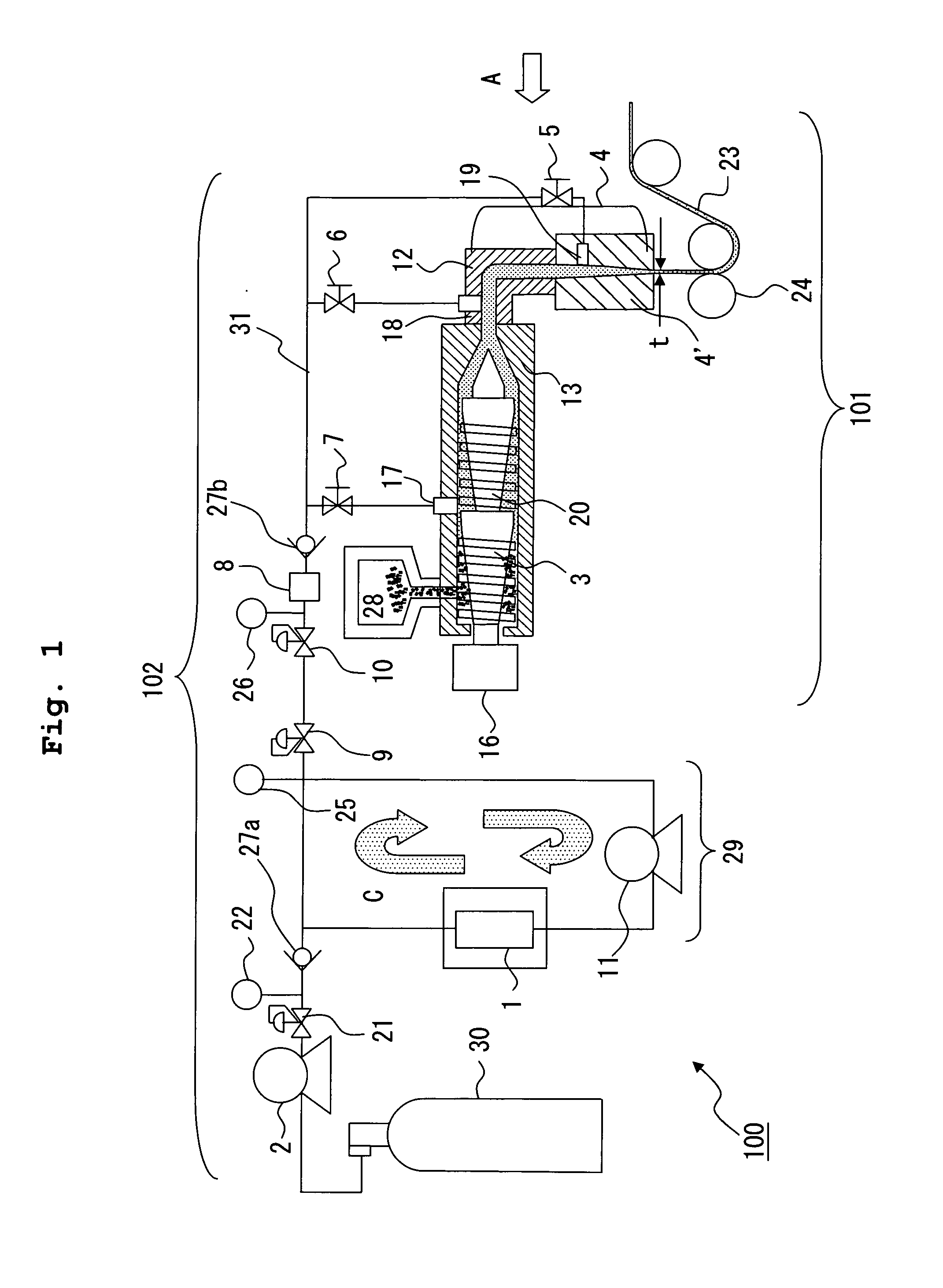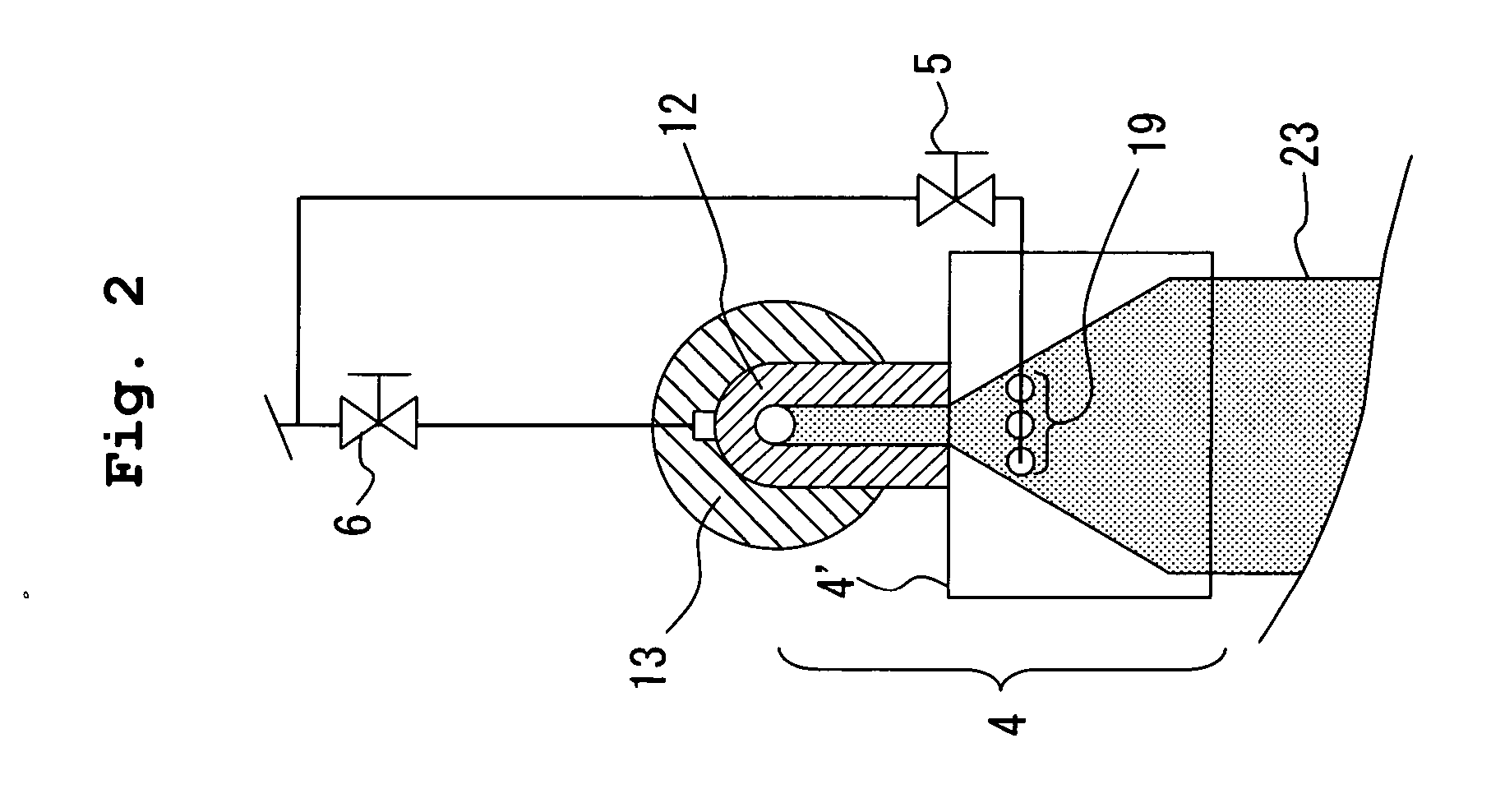Method of producing molded article, extruder, and molded article
a technology of extruder and molded article, which is applied in the direction of synthetic resin layered products, metallic material coating processes, textiles and papermaking, etc., can solve the problems of difficult application of electroless plating processing to resin materials, difficult surface modification processing and electroless plating processing in post-processes, etc., and achieve mass production
- Summary
- Abstract
- Description
- Claims
- Application Information
AI Technical Summary
Benefits of technology
Problems solved by technology
Method used
Image
Examples
embodiment 1
[0100] Embodiment 1 describes a method of impregnating a supercritical fluid (a high-pressure fluid), in which metal complexes (modifying material) have been dissolved, in a molten resin inside an extruder, to produce a thermoplastic resin film (also referred to as “resin film” hereinafter). In addition, in this embodiment, polycarbonate was used as the thermoplastic resin. As the metal complex containing a metallic element, dimethyl(heptafluoro octa nedionate) silver (silver complex: AgFOD) was used. Moreover, a carbon dioxide in a supercritical state was used as the supercritical fluid (also referred to as “supercritical carbon dioxide” hereinafter). It should be noted that the resin film produced in this embodiment can be used as a resin molded article having antibacterial effectiveness.
[0101] Extruder
[0102] First, the extruder which is used in this embodiment is explained. FIG. 1 shows a schematic configuration diagram of the extruder used in this embodiment. FIG. 2 is a schem...
embodiment 2
[0121] In Embodiment 2, hexafluoro acetylacetonate palladium (II) complexes (Pd complexes) were used as the modifying material and, when introducing the high-pressure fluid and the modifying material into the molten resin, only the stop valve 5 was opened to introduce the high-pressure fluid and modifying material from the injector valve 19 provided on the flat die 4′. Except for the above change, the same processing as that in Embodiment 1 was used to produce the resin film. In addition, the thickness of the resin sheet molded by the T die 4 was reduced by an unshown stretching apparatus to produce a resin film a thickness of 0.1 mm. Further, in this embodiment, the same components as those in Embodiment 1 were used as the extruder 100, the thermoplastic resin and the high-pressure fluid.
[0122] In the present embodiment, a low flow rate of the supercritical carbon dioxide and of Pd complexes were introduced from the injector valve 19 provided on the flat die 4′. Specifically, in t...
embodiment 3
[0127] In Embodiment 3, a cylindrical die was used in place of the T die 4 to produce a tube-shaped resin film. In the extruder 100 of this embodiment, a known inflation die (not shown) having a diameter Ø of 50 mm and a gap of 2 mm was attached to the heating cylinder 13 via a joint section (not shown). Further, four injector valves for impregnating the high-pressure fluid and the modifying material were attached to an outer peripheral section of the cylindrical die, and the high-pressure fluid and the modifying material were introduced to the molten resin from these injector valves. Moreover, in the extruder 100 of this embodiment, the uniaxial screw 3 was a full-flight screw with one axis. The configuration of extruder 100 is same as that described in Embodiment 1, except the above change.
[0128] In this embodiment, a liquid crystal polymer was used as the thermoplastic resin and hexafluoro acetylacetonate hydrate copper (II) complexes (Cu complexes) are used as the modifying mat...
PUM
| Property | Measurement | Unit |
|---|---|---|
| Pressure | aaaaa | aaaaa |
| Electrical conductor | aaaaa | aaaaa |
| Metallic bond | aaaaa | aaaaa |
Abstract
Description
Claims
Application Information
 Login to View More
Login to View More - R&D
- Intellectual Property
- Life Sciences
- Materials
- Tech Scout
- Unparalleled Data Quality
- Higher Quality Content
- 60% Fewer Hallucinations
Browse by: Latest US Patents, China's latest patents, Technical Efficacy Thesaurus, Application Domain, Technology Topic, Popular Technical Reports.
© 2025 PatSnap. All rights reserved.Legal|Privacy policy|Modern Slavery Act Transparency Statement|Sitemap|About US| Contact US: help@patsnap.com



